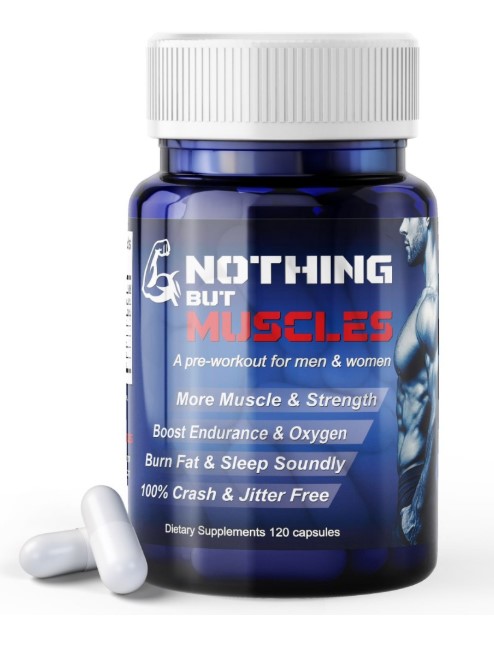The fitness industry has witnessed an unprecedented surge in pre-workout supplement popularity, with athletes and fitness enthusiasts increasingly turning to these formulations to maximize their training potential. Understanding the science, benefits, and proper application of pre-workout supplements can significantly impact your fitness journey and help you achieve your performance goals more effectively.
Understanding Pre-Workout Supplements
Pre-workout supplements are specially formulated nutritional products designed to enhance physical performance, energy levels, and mental focus during exercise sessions. These carefully crafted blends typically combine various ingredients that work synergistically to prepare your body and mind for intense physical activity. Unlike simple energy drinks or caffeine pills, quality pre-workout formulations are scientifically designed to address multiple aspects of exercise performance.
The primary purpose of pre-workout supplements extends beyond merely providing an energy boost. They aim to improve blood flow, enhance muscle endurance, increase power output, sharpen mental focus, and delay the onset of fatigue. This comprehensive approach to performance enhancement makes pre-workout supplements valuable tools for individuals seeking to optimize their training sessions and achieve better results from their fitness efforts.
Key Ingredients and Their Functions
The effectiveness of any pre-workout supplement largely depends on its ingredient profile. Caffeine remains the most widely recognized component, typically ranging from 150 to 400 milligrams per serving. This stimulant enhances alertness, reduces perceived exertion, and can improve both aerobic and anaerobic performance. However, the optimal caffeine dosage varies significantly among individuals based on tolerance levels and sensitivity.
Beta-alanine represents another crucial ingredient, known for its distinctive tingling sensation upon consumption. This amino acid helps buffer lactic acid accumulation in muscles, allowing for extended high-intensity exercise periods. Research consistently demonstrates beta-alanine’s ability to improve muscular endurance, particularly during activities lasting one to four minutes.
Creatine monohydrate, while often associated with post-workout supplementation, provides immediate benefits when included in pre-workout formulations. This compound enhances the body’s ability to regenerate ATP, the primary energy currency of cells, leading to improved power output and strength during short, intense exercise bouts.
Citrulline malate and arginine work together to enhance nitric oxide production, promoting improved blood flow and nutrient delivery to working muscles. This vasodilation effect can result in better muscle pumps, enhanced endurance, and improved recovery between sets. The increased blood flow also facilitates better oxygen and nutrient transport to active tissues.
Performance Benefits
Regular pre-workout supplementation can yield numerous performance advantages when used appropriately. Enhanced energy levels represent the most immediately noticeable benefit, allowing individuals to approach their workouts with greater enthusiasm and intensity. This increased energy translates into longer, more productive training sessions and improved consistency in workout quality.
Improved focus and mental clarity constitute equally important benefits, particularly for complex movements or competitive activities. Pre-workout supplements can enhance the mind-muscle connection, leading to better exercise form, reduced injury risk, and more effective muscle activation patterns. This mental enhancement becomes particularly valuable during challenging workouts or when motivation levels are naturally lower.
The endurance benefits provided by quality pre-workout supplements enable athletes to maintain higher intensity levels throughout their training sessions. This sustained performance capacity can lead to greater training volume, improved adaptation responses, and accelerated progress toward fitness goals. Additionally, many users report reduced perceived exertion, making challenging workouts feel more manageable and enjoyable.
Proper Timing and Dosage
Optimal pre-workout supplementation requires careful attention to timing and dosage considerations. Most experts recommend consuming pre-workout supplements 20 to 30 minutes before exercise to allow adequate time for absorption and ingredient activation. This timing ensures that peak effects coincide with the most demanding portions of your workout.
Dosage requirements vary significantly based on individual factors including body weight, caffeine tolerance, exercise intensity, and specific fitness goals. Beginners should start with half the recommended serving size to assess tolerance levels before progressing to full doses. This conservative approach helps prevent potential side effects while allowing users to determine their optimal intake levels.
Consistency in timing can help establish a routine and maximize the psychological benefits of pre-workout supplementation. Many athletes find that taking their pre-workout at the same time relative to their training creates a mental trigger that enhances focus and preparation for intense exercise.
Safety Considerations and Side Effects
While pre-workout supplements are generally safe for healthy adults when used as directed, understanding potential side effects and safety considerations remains crucial. Common side effects include jitters, increased heart rate, digestive discomfort, and difficulty sleeping if consumed too close to bedtime. These effects are typically dose-dependent and often diminish as tolerance develops.
Individuals with pre-existing medical conditions, particularly cardiovascular issues, should consult healthcare professionals before beginning any pre-workout supplement regimen. Pregnant and nursing women, individuals under 18, and those taking medications should exercise particular caution and seek medical guidance before use.
The importance of cycling pre-workout supplements cannot be overstated. Regular users often develop tolerance to stimulant ingredients, reducing effectiveness over time. Implementing periodic breaks or cycling different formulations can help maintain sensitivity and prevent dependency issues.
Choosing the Right Pre-Workout
The supplement market offers an overwhelming array of pre-workout options, making informed selection crucial for optimal results. Quality products should provide transparent labeling with clearly listed ingredient amounts, avoiding proprietary blends that obscure individual component dosages. Third-party testing for purity and potency provides additional assurance of product quality and safety.
Consider your specific fitness goals when selecting a pre-workout supplement. Strength-focused individuals might prioritize formulations emphasizing creatine and explosive energy ingredients, while endurance athletes may benefit more from products highlighting sustained energy and fatigue resistance. Those new to supplementation should begin with stimulant-free options to assess their response before progressing to caffeinated formulations.
Reading reviews and researching ingredient efficacy can help guide your selection process. However, remember that individual responses vary significantly, and what works optimally for one person may not produce identical results for another. Personal experimentation within safe parameters often proves necessary to identify the most effective option.
Natural Alternatives and Whole Food Options
While commercial pre-workout supplements offer convenience and precise dosing, natural alternatives can provide similar benefits for those preferring whole food approaches. A banana with natural almond butter provides easily digestible carbohydrates and healthy fats for sustained energy. Green tea offers a gentler caffeine source combined with beneficial antioxidants.
Beetroot juice has gained recognition for its natural nitrate content, which converts to nitric oxide in the body, promoting improved blood flow and endurance. Coffee remains a time-tested pre-workout option, providing caffeine along with beneficial compounds that may enhance fat oxidation during exercise.
Creating homemade pre-workout drinks using ingredients like coconut water for electrolytes, lemon for vitamin C, and honey for quick energy can provide effective performance enhancement while maintaining complete control over ingredient quality and quantities.
Integration with Overall Nutrition Strategy
Pre-workout supplementation should complement, not replace, a well-designed nutrition strategy. Proper hydration before, during, and after exercise remains fundamental to performance and safety. Pre-workout supplements work most effectively when combined with adequate sleep, balanced nutrition, and appropriate training programming.
The relationship between pre-workout timing and meal consumption requires careful consideration. Taking supplements on an empty stomach may enhance absorption but could increase the risk of digestive discomfort. Conversely, consuming pre-workout with food may reduce potential side effects but could delay onset of effects.
Conclusion: Key Takeaways
Pre-workout supplements can serve as valuable tools for enhancing exercise performance when used intelligently and responsibly. The most effective approach involves understanding your individual needs, starting with conservative dosages, and maintaining realistic expectations about supplement capabilities.
Quality pre-workout products should complement consistent training, proper nutrition, and adequate recovery rather than attempting to compensate for deficiencies in these fundamental areas. Success with pre-workout supplementation requires patience, experimentation, and ongoing assessment of both benefits and potential drawbacks.
Remember that supplements are tools to enhance an already solid foundation of training and nutrition principles. The most expensive or highly marketed pre-workout cannot replace the benefits of consistent effort, progressive overload, and dedication to your fitness goals. When used appropriately, however, pre-workout supplements can provide that extra edge needed to push through plateaus and achieve new levels of performance.
Choose reputable brands, prioritize ingredient transparency, listen to your body’s responses, and maintain a balanced perspective on supplementation’s role in your overall fitness strategy. With these principles in mind, pre-workout supplements can become valuable allies in your journey toward improved health, performance, and fitness achievements.


